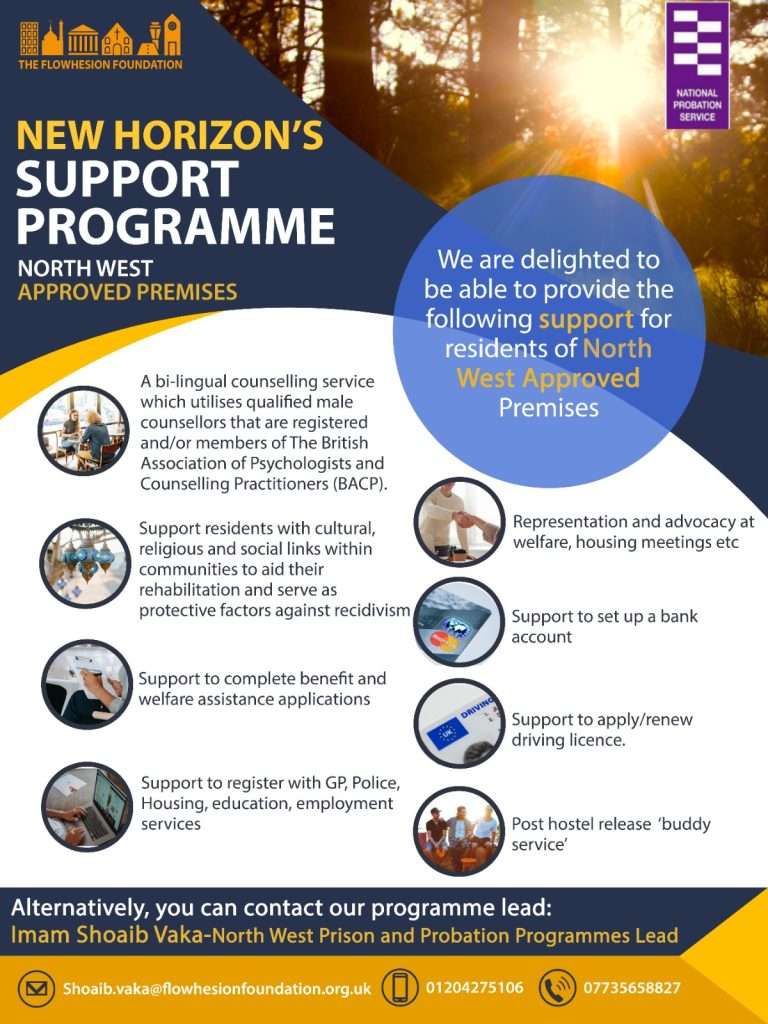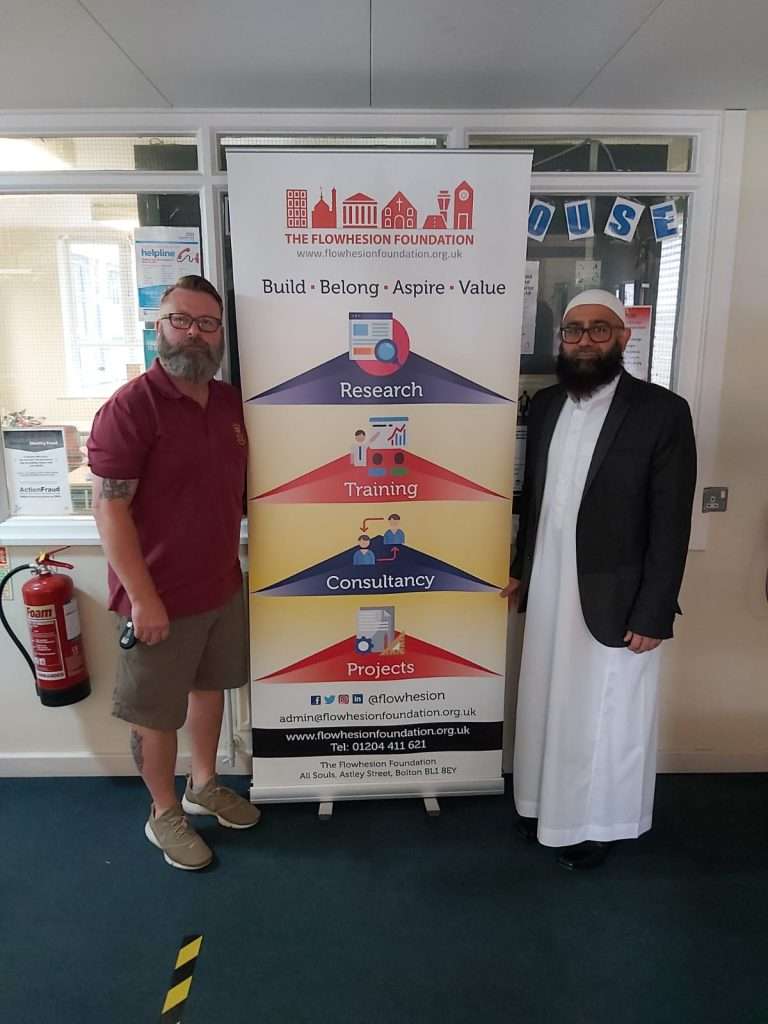Since 2019, The Flowhesion Foundation has been working with The National Probation Service and Northwest Approved Premises (AP) through our New Horizon Programme .
Approved Premises (APs) are premises approved under Section 13 of the Offender Management Act 2007. They provide intensive supervision for those who present a high or very high risk of serious harm. They are mostly used for people on licence, but they also accommodate small numbers of people on bail or community sentences. Approved Premises play a role in monitoring and managing the risk of their residents. They also provide key workers and a programme of purposeful activity that is intended to help with reducing re-offending and reintegration into society.
Our New Horizon’s Programme is delivered by serving prison chaplains and engages with ethnic minority ex-offenders. The support delivered includes; professional counselling, buddy services, help with registration at GP surgeries, Dentists, linking with cultural/religious organisations, as well as a range of advocacy and representation services for ex-offenders as they interact with statutory bodies.
Imam Shoaib Vaka, himself a prison chaplain and Flowhesion’s Prison and Probation programmes lead stated, ‘ I have been working in the secure estate for over 15 years and I am very happy to be coordinating the support we are providing through Flowhesion to AP’s . We have a strong team of ethnically and religiously diverse prison chaplains working on this programme, backed by strong vision and leadership from Flowhesion. I have been overwhelmed by the positivity and gratitude from both staff and residents of APs’.
The innovative programme and the work of Imam Shoaib Vaka were both shortlisted for an Award by The Howard Trust for Penal reform.
Imam Abdul Hafeez Siddique, Founder and CEO of The Flowhesion Foundation ‘ We are proud that the Foundation has been able to deliver this much needed service and wish to thank the National Probation Service for their support. The Flowhesion Foundation was set up to bring those at the margins of our society to the centre. Our work with prisoners on release is therefore an important part of our vision as the evidence base demonstrates that this segment are at risk of being forgotten and stigmatised.’


